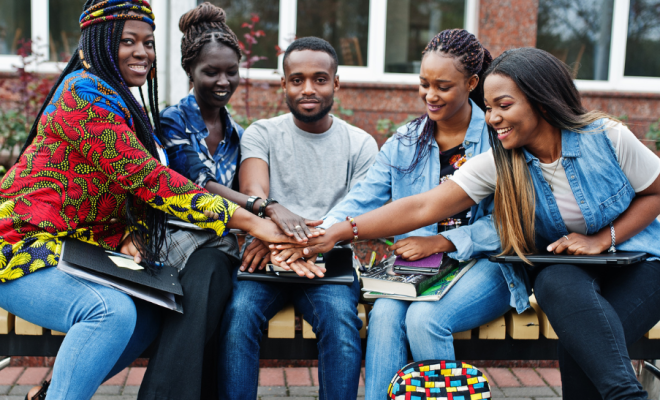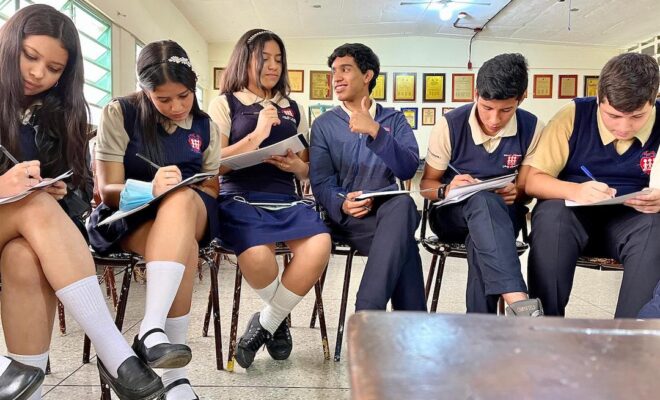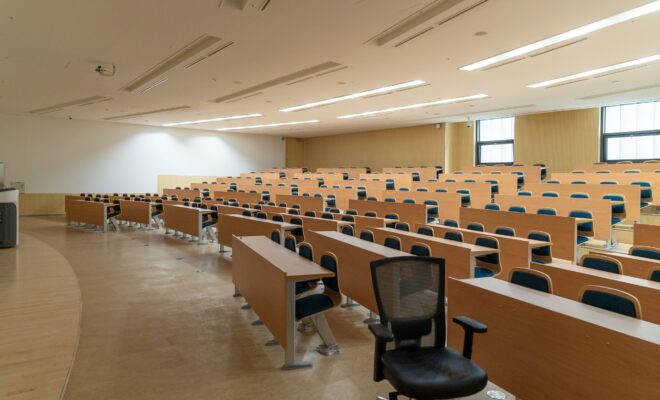Contributions of Afro-descendants to the democratisation of higher education

In Latin America, Afro-descendants and indigenous people, particularly women and young people, are the groups most affected by inequality. These inequalities also manifest in higher education, where they face large gaps. The presence of indigenous and Afro-descendant people in higher education institutions (HEIs) is minoritarian due to the disadvantages these groups face in accessing and remaining in HEIs. For example, in Brazil, Afro-descendants aged 25 and over with completed studies account for approximately 10%, compared to approximately 23% of non-Afro-descendants. In Colombia, the difference is 9-14% between Afro and non-Afro. In Ecuador, the ratio is approximately 10% and 15% between Afro and non-Afro, respectively. In Panama, the ratio is approximately 13-17% (World Bank 2022). It is worth mentioning that, even with strong educational gaps, there have been significant advances in higher education related to the implementation of special inclusion policies or affirmative action policies for indigenous and Afro-descendants in the region, which favour the access of these groups to higher education.
At the end of the 20th century, some universities in Argentina, Brazil, Chile, Mexico, Ecuador and Colombia began to develop intercultural projects, experiences and programmes for the inclusion of people of African descent. Some of these experiences have focused their efforts on affirmative action as a means of democratising access to universities. Brazil is a pioneer in the implementation of Quota Policies or Affirmative Actions[1] for the Afro-descendant population within the educational sphere. These policies were institutionalised with Law 12.711/2012, which provided for the reservation of half of the quotas in universities and federal educational institutions for students from self-declared black, brown and indigenous public schools. The Act also covers low-income students. The arrival of racial quotas in Brazilian universities is the result of the struggle of the black movement, which has made efforts, through numerous initiatives, to highlight racial inequalities (Ocoró and da Silva, 2017). In Colombia, young people belonging to these ethnic groups have also gradually gained access to conventional programmes through special access mechanisms.
We can affirm that Afro-descendants have contributed to democratising higher education in many ways:
- The advent of racial quotas or affirmative action in Brazilian and Colombian universities is undoubtedly the fruit of the continuous struggles of the black movement that strove, with numerous initiatives, to show racial inequalities. Indeed, the Black Movement and its long struggle throughout the 20th century, and since the beginning of the 21st century, against racism, has been the main actor behind the institutionalisation of quota policies or affirmative action in universities. These policies are a response to racism and structural inequality.
- Quota policies or affirmative action policies have produced a significant transformation in the reality of people of African descent, as they have greatly favoured their entry into higher education institutions. This is of great importance, as Latin America has historically been very unequal and this has been very noticeable in the field of education.
- Their presence and activism in universities contributes to questioning and demystifying the prejudices that describe the black population as lacking in academic and cultural capacities, alien to national progress or productive activities. Similarly, the actions of university collectives have contributed to putting anti-racism on the university agenda.
- Their actions have problematised the exclusionary imprint that Latin American education systems have carried from their origins towards the absence of the epistemologies of indigenous and Afro-descendant peoples.
- They have contributed to highlighting epistemic racism and the way in which it operates, closing off opportunities in higher education.
- They have also helped to highlight the Eurocentric, racist and sexist biases that exist in the knowledge disseminated and produced by HEIs.
- They have contributed new topics and fields of research linked to their realities, problems and concerns.
- They have contributed to the valorisation of the knowledge and know-how of indigenous communities and Afro-descendant peoples in HEIs.
- Finally, we can say that they have brought plurality to universities, and to HEIs in general, so that they reflect more of the diversity of the society to which they belong.
Building relationships that recover and value the knowledge and epistemic knowledge of black and indigenous peoples in Latin America, and combating epistemic and institutional racism, is a priority task.
There will be no plural education as long as the struggle against racism is diluted.
There will be no plural education as long as there are historical silences about the contributions of Afro-descendants and indigenous people in the construction of the nation and the present life of our societies.
Today more than ever, we need to strengthen the training of professionals with broad perspectives to intervene in a world in constant transformation, in which present and future generations appropriate critical, anti-racist and intercultural knowledge. It is of great importance that we can debate what knowledge should be present in teacher training today, in professional training in general, and what knowledge needs to be rethought in order to move towards more egalitarian societies.
[1] According to the Statute of Racial Equality, instituted by Law No. 12288/2010, ‘affirmative actions are understood as programmes and special measures adopted by the State and by private initiative to correct racial inequalities and promote equal opportunities’ (art. 1, VI).
Author:
Anny Ocoró Loango
Researcher of the Higher Education and Indigenous and Afro-descendant Peoples in Latin America Programme (ESIAL – UNTREF).
Free version of the original in Spanish
RELATED ITEMS








